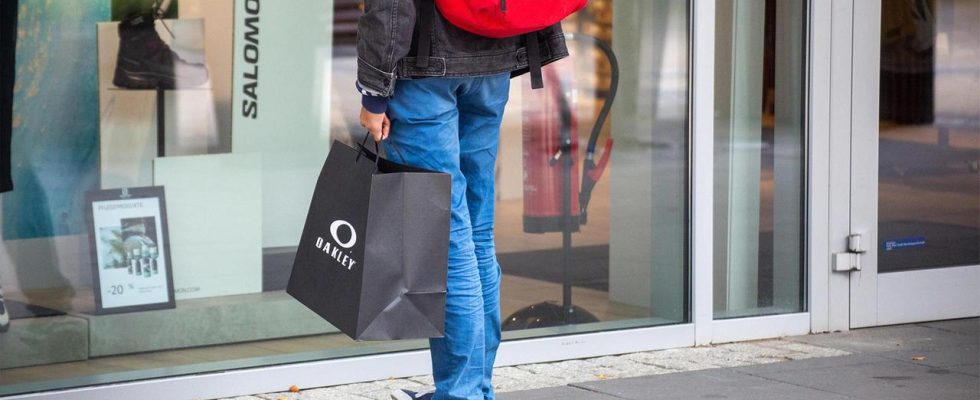Save money or spend money? The Germans have been answering this question for some time now with “saving money” – despite higher wages and slower inflation. Where does the reluctance come from?
The economics textbooks are full of equations and relationships – one of which is: If consumers have more money at their disposal, then they can afford more, and that stimulates consumption. Or not?
“According to the economics textbook, this is how it should be,” confirms Carsten Brzeski, chief economist at ING Bank. “We will get a really big increase in real wage growth again this year.” But there is one caveat: “We are of course now coming from several years in which consumers have also suffered a loss of real wages and purchasing power. That means it is just compensation for what was lost in the last few years.”
Last year, real wages rose slightly again for the first time since 2019. The Federal Statistical Office calculated this. This means that people had a little more money on average, even minus inflation. This year the increase is likely to be larger.
“The consumer is simply unsettled”
But it takes time for this to get into people’s minds. Brzeski assumes that a psychological effect that the economist calls “fear saving” is currently coming into play. “I therefore assume that many consumers will say to themselves: ‘Let’s build up the savings and security buffer again before we spend the money again on consumption and services’.”
The recent sharp rise in prices also plays a role, explains Jörg Funder. He is a professor of commerce at the University of Worms. Consumers are still unsure whether they will face further cost increases.
“Be it energy prices, be it fuel prices, be it renovation measures – the consumer is simply unsettled,” says Funder. “It needs stability, it needs reliability. And that is something that is only slowly building up and where the German consumer is still very skeptical and uncertain about what lies ahead.”
Purchase reluctance paralyzes the economy
This development is also reflected in the figures presented monthly by the consumer researchers at GfK and the Nuremberg Institute for Market Decisions. Looking ahead to April, the mood among consumers only brightened slightly. The entire industry is suffering from the poor consumer climate, says retail expert Funder. This is evident in online retail as well as in stationary stores: “Overall, we see a reluctance to buy everything that does not concern everyday needs.”
The reluctance to consume is also paralyzing the entire German economy. The share of private spending accounts for around half of the gross domestic product in Germany. Although this is far less than in the USA, for example, the German economy also depends largely on consumer goods. Many economists expect that the German economy will not grow at all or only grow very little this year.
Better consumer mood probably only in the second half of the year
Can consumption soon be a support? “Of course we still have a lot of uncertainty. We still have decent savings interest rates,” points out ING chief economist Brzeski. “I’m a bit afraid that we’ll see more ‘fear saving’ this year – and not the big upswing in consumption that we need to get the overall economy back on track.”
Economists may see improvement in the second half of the year. The European Central Bank could also help with falling interest rates. These, in turn, could make investments more affordable – and perhaps also loosen consumers’ wallets a little.
Sebastian Schreiber, tagesschau, March 26, 2024 4:02 p.m

